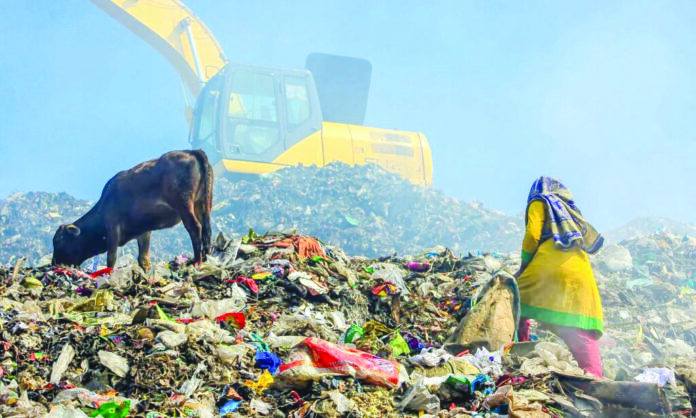India’s urban centres are grappling with an escalating waste crisis, exacerbated by rapid urbanization, consumerism, and inadequate waste management infrastructure. Traditional linear models of consumption: take, make, dispose have led to unsustainable waste generation, overwhelming landfills and polluting ecosystems. In response, a paradigm shift towards a circular economy (CE) is gaining momentum, emphasizing resource efficiency, waste minimization, and sustainable design. However, the success of this transition hinges not only on technological advancements but also on profound social and behavioural changes. This article explores how fostering a culture of circularity can drive India’s urban waste transformation, focusing on community engagement, policy frameworks, and innovative practices. A circular economy is an economic system aimed at eliminating waste and the continual use of resources. It contrasts with the traditional linear economy by promoting practices that extend the lifecycle of products, encourage reuse, and minimize resource extraction. In India, the concept of circularity resonates with traditional practices such as repairing, reusing, and recycling, which have been integral to various communities for centuries. These cultural practices provide a strong foundation for adopting circular economy principles in urban settings.
Transitioning to a circular economy requires more than infrastructural and technological upgrades; it necessitates a shift in societal attitudes and behaviours towards waste. Public participation is crucial in waste segregation, recycling, and adopting sustainable consumption patterns. Initiatives like the Swachh Bharat Mission have made strides in promoting cleanliness and waste management awareness. However, for lasting impact, these efforts must be complemented by education campaigns, community involvement, and incentives that encourage responsible waste practices. Across India, numerous community-driven initiatives exemplify the potential of grassroots movements in waste management. In Bengaluru, the “Hasiru Dala” initiative empowers waste pickers by integrating them into formal waste management systems, providing them with training, safety equipment, and fair wages. Similarly, in Pune, the “Pune Municipal Corporation’s Waste Segregation Program” engages residents in source segregation, composting, and recycling, significantly reducing landfill waste. Innovative models are also emerging in urban waste management. Startups like “Goonj” are transforming urban waste into products like clothing and sanitary pads, addressing both waste and social issues. These models not only reduce waste but also create employment opportunities and promote sustainable consumption.
The Indian government has recognized the importance of a circular economy in achieving sustainable development goals. Policies such as the National Resource Efficiency Policy and the Plastic Waste Management Rules aim to reduce resource consumption and promote recycling. The introduction of Extended Producer Responsibility (EPR) mandates producers to take responsibility for the entire lifecycle of their products, encouraging them to design for recyclability and reduce waste generation. Additionally, the implementation of smart waste management systems in cities like Indore and Surat demonstrates the role of technology in enhancing waste collection, segregation, and recycling processes. These systems utilize data analytics and Internet of Things (IoT) devices to optimize waste management operations, leading to increased efficiency and reduced environmental impact.
Despite the progress, several challenges impede the widespread adoption of circular economy practices in urban India. Many urban residents are unaware of the importance of waste segregation and recycling, leading to contamination of recyclable materials and inefficiencies in waste management systems. Insufficient facilities for waste segregation, recycling, and composting limit the effectiveness of circular economy initiatives. Habits and cultural norms that favour convenience over sustainability can hinder the adoption of circular practices. While policies exist, their implementation is often inconsistent, and enforcement mechanisms are weak. Addressing these challenges requires a multifaceted approach involving education, infrastructure development, policy reforms, and community engagement. To foster a culture of circularity, launching nationwide campaigns to educate citizens about the benefits of waste segregation, recycling, and sustainable consumption can raise awareness and encourage participation. Involving local communities in waste management decisions and activities can enhance ownership and accountability, leading to more effective outcomes. Providing incentives such as subsidies, recognition, or financial rewards for households and businesses that adopt circular practices can motivate participation. Investing in facilities for waste segregation, recycling, and composting is essential to support circular economy initiatives. Strengthening the implementation of existing policies and introducing new regulations that promote circularity can create a conducive environment for change.
Several cities and organizations in India are leading the way in implementing circular economy practices. Indore has been recognized as one of the cleanest cities in India as it has implemented a comprehensive waste management system that includes waste segregation at source, composting, and recycling. The city’s approach has significantly reduced landfill waste and set a benchmark for other cities. Goonj is an NGO that repurposes urban waste materials to create products like clothing and sanitary pads and it addresses both waste management and social issues, promoting sustainable consumption and providing employment opportunities. In Bengaluru, the “Hasiru Dala” initiative integrates waste pickers into the formal waste management system, providing them with training and fair wages, thereby improving their livelihoods and contributing to effective waste management. The transition to a circular economy in India’s urban centres is not merely an environmental necessity but a cultural imperative. By leveraging traditional practices, fostering social and behavioural change, and implementing supportive policies, India can build a sustainable and resilient urban waste management system. This transformation requires collective action from individuals, communities, businesses, and governments to embrace circularity as a way of life, ensuring a cleaner, healthier, and more sustainable future for all.
Dr. Sharanpreet Kaur in an Assistant Professor of International Relations at School of Social Sciences, Guru Nanak Dev University, Amritsar.








